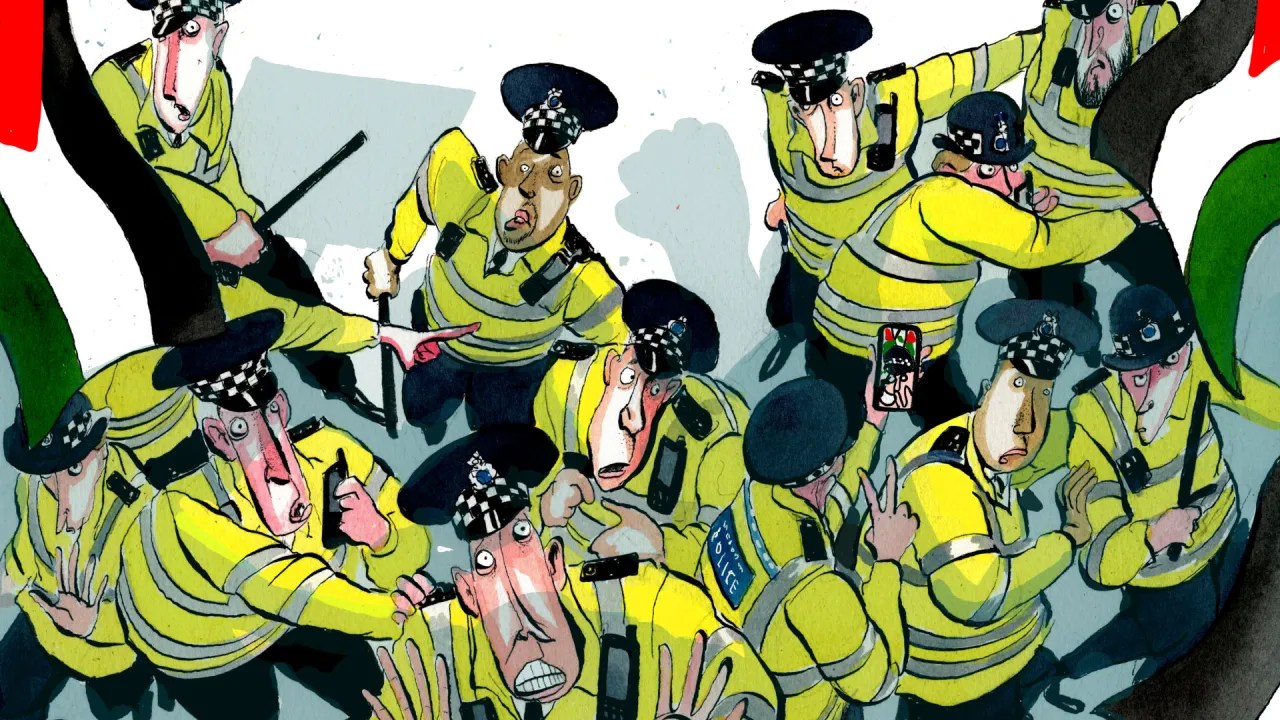So farewell then, Police and Crime Commissioners (PCCs). The government has just announced that this weak and useless experiment in local democracy will be terminated. Few people will notice outside the cottage industry of ineffectual crime busters who will be receiving redundancy notices. That’s part of the problem.
Elected PCCs were introduced in 2010 as a flagship Conservative commitment to get police chiefs to respond to local priorities on crime. Instead, they become symbols of wasteful bureaucracy, partisan meddling and bungling oversight. They were set up to replace opaque and often toothless policing authorities composed of local councillors. It has taken 15 years to work out that replacing one set of elected bureaucrats with a single sheriff with no guns isn’t an improvement.
The original national elections for PCCs in 2012 produced a turnout of just 15 per cent. The latest in 2021 rose to barely more than a third of uninterested voters. The failure of PCCs to make any impact is underscored by their lack of mandate.
It’s worth dwelling on some of the lowlights of the past decade and a half of PCCs. Despite their original conception as champions of the people, most places got more of the same. Independent candidates, some with actual experience of policing, were squeezed out by party machines that put forward political duds. These positions became rewards for failure or loyalty.
Before the introduction of PCCs, I was a Special Constable for five years in Devon and Cornwall. For much of that time I was also the senior official for the Home Office in South West England, where I was effectively managing the performance of five police chiefs with centrally mandated targets on crime, drugs and counter terrorism. I’m not claiming it was perfect but a degree of central government oversight that had the eye of the Home Secretary certainly focused the minds of my chief officers.
It’s fair to say that my later ‘replacement’ Alison Herndandez has had a bit of a bumpy ride as PCC for the peninsula. In 2017 she faced a vote of no confidence by her oversight police and crime panel for suggesting that civilians holding firearms could ‘be some of our solution’ to terrorist attacks. In 2024 she defied the same panel who said her former Torbay council colleague was unsuitable for appointment as her deputy. In 2025 she apologised after she incorrectly claimed multiple bodies were involved in a Cornwall murder investigation without knowing the facts.
It wasn’t just flawed people that marked the PCC initiative for failure, it was the legislation itself, which was mired in vagueness. PCCs were responsible for setting the broad objectives for a force but they had no power to contest the operational independence of chiefs even if that led to manifestly dumb decisions. This was a guddle made in Whitehall that defanged the watchdog before it had left the kennel. While some PCCs clearly shouldn’t be let near matches, never mind complex tactical policing decisions, it meant in effect that police chiefs could ignore their line managers without any professional consequences. It has also proved remarkably useful for other Commissioners who needed to evade any responsibility for messes they ought to have been aware of and intervened to stop before they hit the headlines.
In recent years, PCCs have evolved or mutated, depending on your point of view, taking over responsibility for fire and rescue services and having their responsibilities subsumed within regional or metro mayoralties, all without any discernible improvement either in trust or performance. By any comparable measures, public confidence in policing has fallen steadily over the last 15 years. So if PCCs aren’t part of the solution, what is?
We have a serious problem with crime being perceived to be out of control. For certain crimes, including knife and sexual offences, that is the stark reality. Awful crime-solving rates for violent offences back that view up. PCCs are a failed powerbase for tackling this problem but they are far from the only one. The creation of the College of Policing with its absurd progressive obsessions with policing hurty words, inclusion and sensitivity has also done much to make policing untrustworthy. People just want their burglaries solved, their kids safe on a night out and rapists caged.
I would temporarily give the Home Secretary the power to directly manage and appoint chief officers while a new system is devised. The gap between government and the citizen when it comes to law and order has turned into a maze of inadequate governance, bureaucracy and parochial point scoring. It is Shabanna Mahmood and this government who will be punished for losing control of crime. She might as well have the powers as well as the scars.








Comments